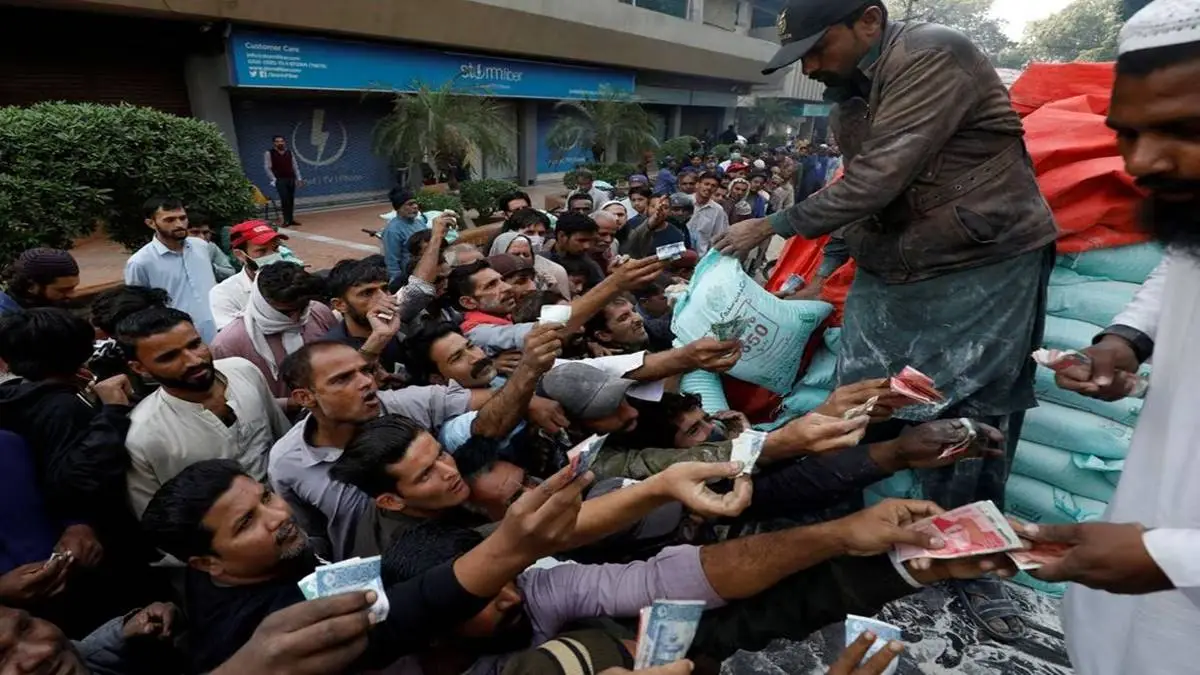
Pakistan in Crisis: Navigating challenges toward a stable future By Dr Muhammad Shahzad Ashfaq
THE current situation in Pakistan is one that demands careful analysis and strategic planning in order to navigate the challenges the country faces toward a stable future. From political instability to economic challenges, Pakistan is confronted with a myriad of issues that require immediate attention and long-term solutions. It is important to explore the various dimensions of the crisis in Pakistan and propose potential pathways to a stable future. However, Pakistan has a history of political instability, characterized by frequent changes in government, military coups and a lack of continuity in policies and governance. The recent years have seen a rise in political polarization, with competing political parties struggling for power and influence.
The ongoing power struggle between the civilian government and the military has further intensified the political instability in the country. The lack of political consensus and the destruction of democratic institutions have hindered the effective governance of Pakistan, leading to a sense of disillusionment among the public. In order to address this challenge, it is imperative for Pakistan to strengthen its democratic institutions, uphold the rule of law and promote political inclusivity. A stable future for Pakistan hinges on the establishment of a political system that is transparent, accountable and representative of the diverse interests of the population.
Main problem of Pakistan faces significant economic challenges that have contributed to the overall crisis in the country. High levels of inflation, unemployment and a growing debt burden have strained the economy, leading to social unrest and economic hardship for many Pakistanis. The lack of sustainable economic growth and development has further worse the situation, creating a sense of uncertainty and instability. It is essential to implement comprehensive economic reforms that prioritize inclusive growth, job creation and poverty alleviation. Investing in infrastructure development, promoting entrepreneurship and enhancing the business environment are critical steps toward achieving economic stability and prosperity. Additionally, Pakistan must focus on diversifying its economy, reducing its dependence on a few key industries and promoting sustainable development practices.
The security situation in Pakistan is linked to the regional dynamics of South Asia. The ongoing conflict in Afghanistan, the longstanding tensions with Hindustan and the presence of extremist groups pose significant security challenges for Pakistan. The spillover effects of regional conflicts, cross-border terrorism and internal security threats have contributed to a sense of insecurity and instability within the country. Pakistan must prioritize national security, counter-terrorism efforts and regional cooperation. Strengthening border security, enhancing intelligence capabilities by using AI and promoting dialogue and diplomacy with neighbouring countries are essential steps toward achieving stability and security. Addressing the root causes of extremism, promoting social cohesion and fostering a culture of tolerance and inclusivity are critical in countering the threat of extremism and violence.
Pakistan extends beyond political and economic dimensions to encompass social and human development challenges. Issues such as poverty, illiteracy, healthcare access and gender inequality continue to impede the overall development of the country. The lack of access to quality education, healthcare and social services has perpetuated social disparities and hindered the potential for progress and prosperity. In order to address the social and human development challenges, Pakistan must prioritize investments in education, healthcare and social welfare programs. Promoting gender equality, empowering marginalized communities and enhancing social safety nets are essential in fostering a more inclusive and equitable society. The underlying social determinants of health, such as access to clean water, sanitation and nutrition, is critical in improving the overall well-being of the population.
In this crisis, Pakistan demands comprehensive governance and institutional reforms to address the systemic challenges that have hindered the country’s progress. Weak governance, corruption and a lack of institutional capacity have undermined the effectiveness of public institutions and eroded public trust in the government. Strengthening the rule of law, promoting transparency and accountability and combating corruption are essential in building resilient and effective governance structures. In order to achieve a stable future, Pakistan must prioritize institutional reforms that enhance the efficiency, transparency and accountability of public institutions. Investing in capacity building, promoting merit-based appointments and streamlining bureaucratic processes are critical steps toward improving the overall governance framework. Fostering a culture of peace, ethical leadership and public service excellence is essential in rebuilding public trust and confidence in the government.
The country has a large population living below the poverty line and services such as education and healthcare are few. Gender inequality is also a serious problem: Women are different in both the public and private sectors. A comprehensive approach to solving social problems would include investing in social programs, improving education and health services and empowering women and disadvantaged families. To address governance issues, Pakistan needs to strengthen anti-corruption measures, improve service delivery and promote transparency and accountability in government affairs.
Pakistan stresses a holistic approach that addresses the political, economic, security, social and governance challenges facing the country. Navigating toward a stable future requires concerted efforts to strengthen democratic institutions, promote inclusive economic growth, enhance national security and prioritize social and human development. By addressing political, economic, security, social and governance challenges together, Pakistan can pave the way for a better, more prosperous and inclusive future for its people. Only through full and united efforts, Pakistan overcomes its challenges to realize its potential as a nation.
—The writer is Postdoctoral Fellow, International Islamic University Islamabad.
Pakistan in Crisis: Navigating challenges toward a stable future By Dr Muhammad Shahzad Ashfaq
Source: https://pakobserver.net/pakistan-in-crisis-navigating-challenges-toward-a-stable-future/


